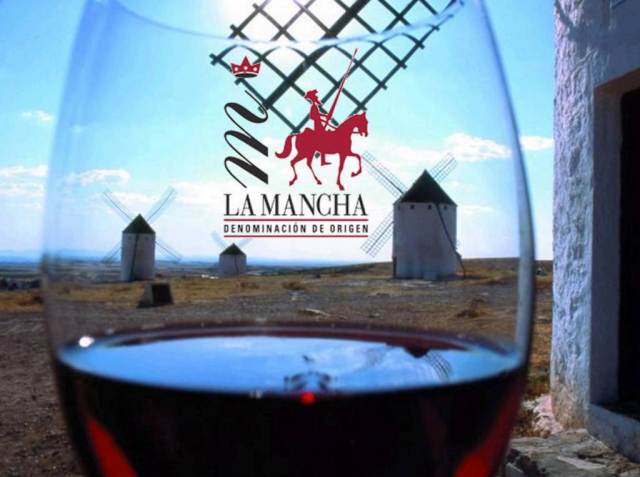
In Virgen de las Viñas, a large wine and oil cooperative located in Tomelloso (Ciudad Real), a million liters of bulk wine are sent on their way everyday en route to France, Italy and Germany.
According to the cooperative most of the wine from La Mancha gets sent abroad, which in itself isn't a a problem, the problem is, it’s getting cheaper all the time.
This is a cause for concern for an industry whose exports have skyrocketed in recent years, yet whose revenues have dropped.
Last year, Spanish wine exports grew 22.3 percent from 2013, reaching over 2.28 billion liters and making Spain the world’s largest exporter, according to the Spanish Wine Market Observatory (OEMV).
Yet revenues from wine exports fell 3.2 percent, and the average selling price for a liter of wine slumped by as much as 20.6 percent. In 2014, Spain exported wine at €1.11 a liter, compared with €5.37 charged by France.
Spain make a lot of very good wine, but they sell it at the price of a bad wine. This same product is later commercialized by France and Italy at much higher prices.
The explanation for Spanish wine’s inability to fetch the market prices that experts agree it deserves is manyfold: a lack of good salespeople with language skills, weak distribution networks, over-abundant harvests and low-paying customers.
Another reason is the fact that Spain specializes in bulk wine. Unbottled Spanish wine is used by bars, supermarkets and sangria makers across the globe. Last year, Spain sold 1.25 billion liters of bulk wine, a 38-percent rise from the previous year. Three-fourths of this amount gets sent to France, Germany, Portugal and Italy.
Some of the Spanish wine that makes its way to France gets re-exported as Spanish wine, or turned into alcohol, or mixed with French wine, while in Germany it is used to make sparkling wine.
Last year, the price of a liter of Spanish bulk wine was €0.40, compared with €2.48 for New Zealand, €0.71 for Italy and €1.24 for France.
Castilla-La Mancha, where half of Spain’s wine is produced, perfectly illustrates the problem. In 2014, regional production grew 51.8 percent and prices fell 34.9 percent to €0.50 per liter, compared with €8.45 in the Canary Islands and €3.48 in the Basque Country.
The 2014 figures are particularly bad due to an extraordinarily plentiful harvest. The abundance caused prices to plummet. The hyper-sensitive global market sensed Spanish winemakers’ urgency, and negotiated prices down.
The Virgen de las Viñas cooperative illustrates the strengths and weaknesses of Spanish wine in general and wine from La Mancha in particular. This place boasts about being the largest wine cooperative in Europe, and sells 90 percent of its production in bulk. Eighty percent is exported to France, Italy and Germany. The cooperative, which keeps growing, is now focusing efforts on selling more bottled wine and less table wine.
They have increased bottling, but it is utopian to think that they can bottle all the wine of La Mancha. If the Spanish drank as much wine as the Italians or the French do, a lot of the problems would go away. There is no wine culture in Spain any more, young people no longer go out for a glass or two the way they used to.
Now, Virgen de las Viñas is planning to join other cooperatives, open new bottling plants, and launch commercial agencies in export destinations.
There are areas where the situation is not as bad as it is in Castilla-La Mancha. In La Rioja, renowned worldwide for its quality bottled wines with “designation of origin” labels, winemakers understood long ago that it is better to produce less and sell at higher prices.
Yet in Spain, even bottled products still sell at far lower prices than other exporting countries: €2.06 a liter versus €4.66 a liter in France.
According to marketing specialists It’s not a question of quality, but of perception. Spain says it has quality wine, yet it sells at €0.40. If it wants to be quality, it really needs to make decisions
Just a half-hour drive from Virgen de las Viñas, in Manzanares, there is another winemaker that is the opposite of the Tomelloso macro-cooperative. Vinícola de Castilla only sells bottled wine, and production is a mere 10 million bottles a year. Two-thirds of these get sold to clients in 45 countries.
Of the 26 people on staff, 12 are sales agents and four of them travel the world with a bottle under their arm. Managers say that, just like other winemakers, they have trouble finding employees who are prepared to travel and whose English is good enough to represent the company abroad.
They say they could sell more, but they would have to lower their prices. But they believe that the key lies in producing less and they even defend setting production limits which they realise is not a popular choice.
Bottling means mostly finding new clients, knocking on doors and traveling the world. And that is precisely the industry’s weakness. It is much easier to sit in the office and wait for a French agent to come with an order, than to go knocking on doors in Singapore. The sales agent who goes abroad finds clients, but also finds out what people are drinking outside our borders, whether they prefer sweet wines, red or white, in a bottle or in a plastic bag, and that kind of information is essential in order to adapt the supply.
Reducing the harvests is a recurring theme among industry experts, but it is also a touchy issue. Around 400,000 families make a living from winemaking in Spain, something not to be taken lightly.